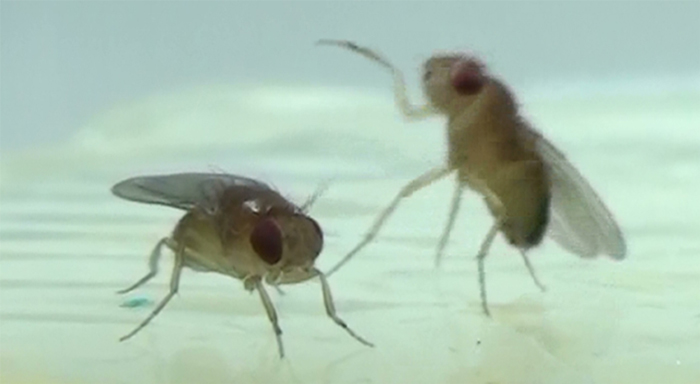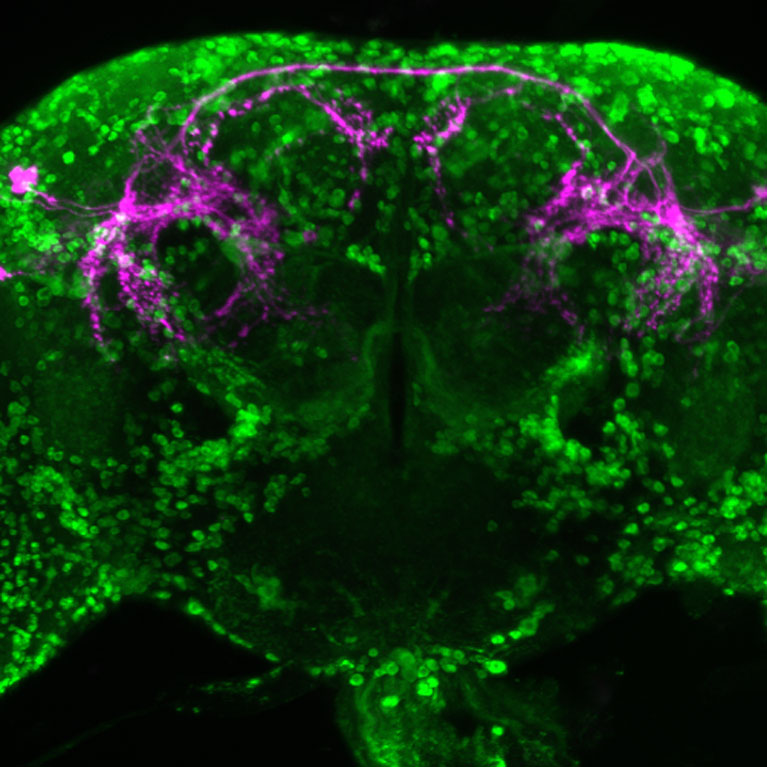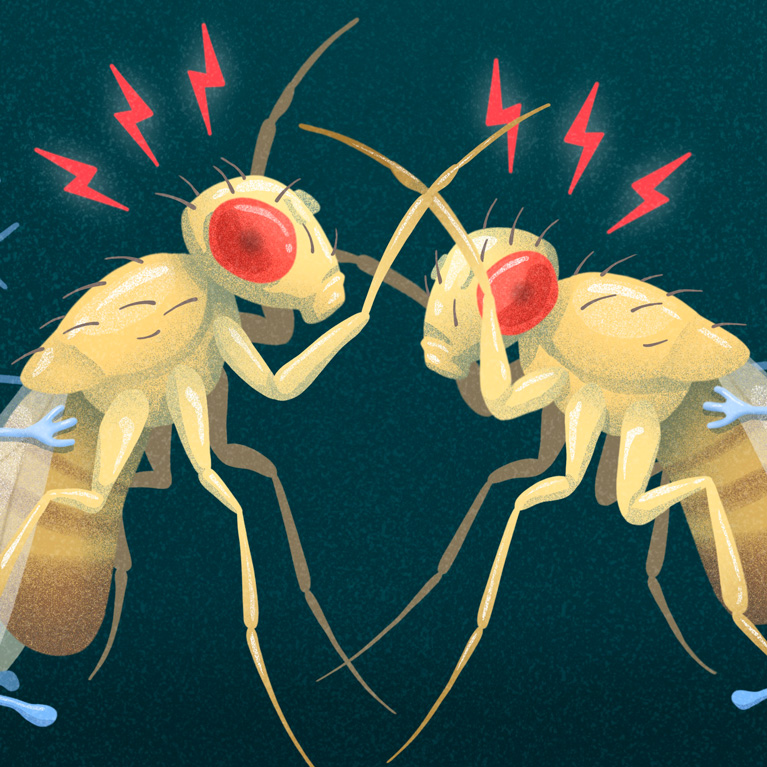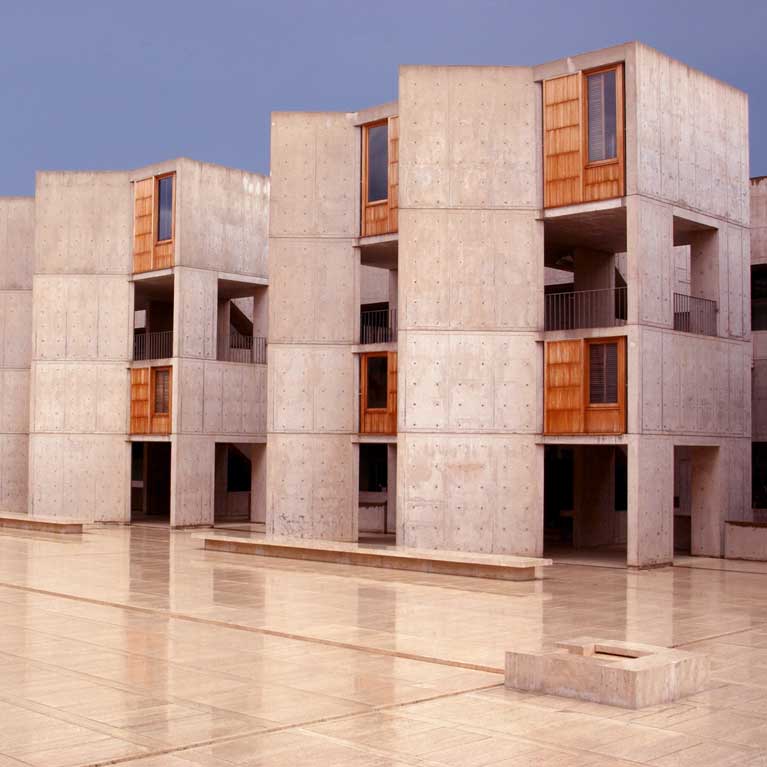Salk Press Releases
How aggression-promoting brain peptide works in fruit flies
LA JOLLA—In addition to communicating with neurotransmitters, the brain also uses small proteins called neuropeptides. Neuropeptides send signals between neurons, working similarly to neurotransmitters but with key differences like a greater size and an ability to travel far away from the neuron that produces them. Though their importance is widely recognized, the way neuropeptides move around the brain and influence neurons has remained poorly understood—until now.
Aggression de-escalation gene identified in fruit flies
LA JOLLA—The brain mechanisms that cause aggressive behavior have been well studied. Far less understood are the processes that tell the body when it’s time to stop fighting. Now, a new study by Salk scientists identifies a gene and a group of cells in the brain that play a critical role in suppressing aggression in fruit flies.
The Salk Institute promotes three faculty members in the field of neuroscience
LA JOLLA—Three Salk Institute faculty members have been promoted based on their outstanding scientific contributions. They are leaders who have made original, innovative and notable contributions to neuroscience. Assistant Professors Kenta Asahina and Eiman Azim were promoted to associate professor, and Associate Research Professor Margarita Behrens was promoted to research professor.
New insights into how genes control courtship and aggression
LA JOLLA—Fruit flies, like many animals, engage in a variety of courtship and fighting behaviors. Now, Salk scientists have uncovered the molecular mechanisms by which two sex-determining genes affect fruit fly behavior. The male flies’ courtship and aggression behaviors, they showed, are mediated by two distinct genetic programs. The findings, both published in eLife on April 21, 2020, demonstrate the complexity of the link between sex and behavior.
The Kavli Foundation gifts Salk $3 million for cutting-edge neuroscience research
LA JOLLA—The Salk Institute announced today that The Kavli Foundation has committed $3 million to support ongoing neuroscience research at Salk as part of the joint UCSD-Salk Kavli Institute for Brain and Mind (KIBM). The gift—matched by an additional $3 million from Salk—will add $6 million to the KIBM Endowment, to enable faculty in neuroscience to work on the most impactful questions in the field. The Kavli Institute for Brain and Mind was established through a $15.5 million endowment commitment from The Kavli Foundation, shared between Salk and UC San Diego.
Salk Institute welcomes four new faculty
LA JOLLA—The Salk Institute is pleased to welcome a new full professor and three new assistant professors, all exceptional leaders in their respective fields. The new faculty will facilitate innovative and collaborative breakthroughs in understanding human health and disease.
Press
- Rad Scientist website (podcast hosted by Margot Wohl)
http://www.kpbs.org/radio/series/rad-scientist/ - New York Times (James Gorman)
http://www.nytimes.com/2014/02/04/science/to-study-aggression-a-fight-club-for-flies.html?_r=0 - Pasadena Star-News (Adam Poulisse)
http://www.pasadenastarnews.com/science/20140201/caltech-angry-fly-study-could-lead-to-curbing-human-male-aggression - Caltech press release
http://www.caltech.edu/news/fighting-flies-41791 - Matthew Cobb
http://whyevolutionistrue.wordpress.com/2014/01/19/your-inner-fly-fighting-dipterans-share-genes-with-you-and-me/ - James Goldman
http://animals.io9.com/of-flies-and-men-what-scientists-are-learning-about-in-1548274774 - TEDx at Moorpark College (September 2014)
https://www.youtube.com/watch?v=QLUvb0fZOzc - Salk Talk (edited by Margot Wohl)
http://www.salk.edu/news/podcasts/






